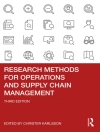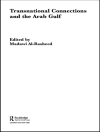Doing Ethnography is invaluable reading for anyone collecting data through observation. Innovative and thought provoking, it is a refreshing take on ethnography stressing both academic rigor and practical necessity. It combines theoretical perspective with tangible action plans and walks you step-by-step through designing, conducting, and evaluating ethnographic research.
The book skilfully introduces the varied tasks and decisions you need to consider before entering the fieldhelping you to avoid common mistakes and to conduct safe, ethical research.
The redesigned Second Edition has cutting edge case studies and examples from across the social sciences and has an embedded awareness of the importance of digital research tools and social media. It also includes a detailed discussion of:
- Autoethnography
- Digital Ethnography
- Visual Ethnography
- Feminist Ethnography
- Managing and Analysing data
This is an ideal companion for every novice researcher.
Inhoudsopgave
Part One: The Methodology
What is Ethnography?
Method or Methodology? Locating Ethnography in the Methodological Continuum
Ethnography: Approaches, Methods and Personalities
Key Ethnographic Approaches
Research Design
Ethnographic Sample Design
Part Two: Working the Field
Entering the Field
Ethical Dilemmas
How to Observe
What to Observe: Social Structures, Talk-in-Interactions and Contexts
Ethnographic Interview
Ethnography as a Craft
Part Three: Analyzing Ethnographic Data and Theory Building
Coding and Analyzing Ethnographic Data
Politics of Accountability
Part Four: Audiences
Communicating Findings, Writing Ethnographies
Leaving the Field
The ‘Visual Society’: A Chance for Applied Ethnography
Over de auteur
Dr. Andrea Molle holds a Ph D in Sociology from the Universita’ degli Studi di Milano. Between 2006 and 2008 he conducted extensive ethnographic research in Japan. Fellow of the “Japan Society for the Promotion of Science” and the “Royal Asiatic Society of Great Britain and Ireland, ” his current research agenda focuses on cross-cultural studies of new religions, implicit religion practices and behaviour, the paranormal, religious violence, and martial arts and warfare studies. His methodological interests include the intersection between ethnography and computational tools for the study of social complexity. He has published a book on new religions (in Italian) and several articles in journals in the fields of Sociology, Anthropology, and Political Science.












